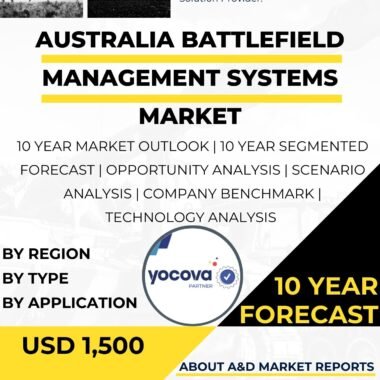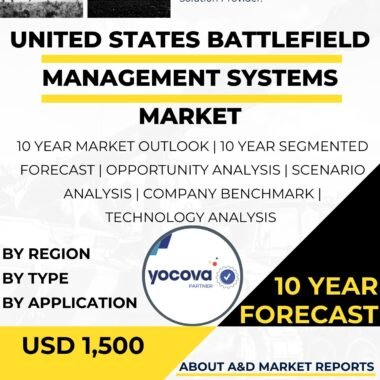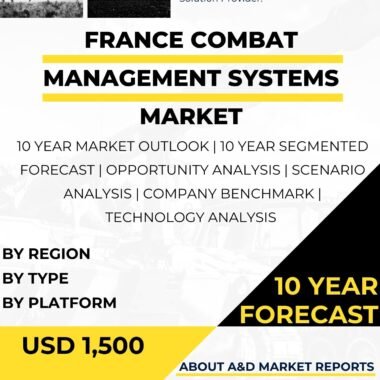Description
The battlefield management systems market in Singapore has experienced significant growth and development, reflecting the country’s commitment to equipping its armed forces with advanced command and control capabilities. As a small and highly urbanized nation in Southeast Asia, Singapore faces unique security challenges that require innovative solutions. The adoption of battlefield management systems allows Singapore to establish a modern and well-connected military force, contributing to the country’s overall defense preparedness and operational effectiveness.
Battlefield management systems are a critical component of modern warfare, providing commanders with real-time situational awareness and decision-making support. These systems integrate various technologies, such as communications, sensors, and data analytics, to collect, process, and disseminate information across the battlefield.
Singapore’s focus on modernizing its defense capabilities, including its command and control infrastructure, has positioned the country as a key player in the global battlefield management systems market. The nation’s defense industry and research institutions have actively collaborated with global defense companies to acquire and develop cutting-edge battlefield management technologies.
The adoption of advanced battlefield management systems offers several benefits to Singapore’s defense posture. First and foremost, these systems provide commanders with a comprehensive and accurate picture of the battlefield, enabling them to make informed decisions quickly. Real-time information allows for rapid responses to emerging threats and dynamic battlefield conditions.
Moreover, battlefield management systems enhance the coordination and synchronization of military operations. By providing a shared situational awareness, these systems enable seamless integration between different units and branches of the armed forces, ensuring that the right forces are deployed at the right time and place.
The use of advanced communications and networking technologies in battlefield management systems improves the efficiency of information exchange. These systems allow for secure and reliable communication among troops, even in challenging and contested environments.
The adoption of battlefield management systems aligns with Singapore’s focus on network-centric warfare concepts. These systems are designed to be interoperable with other components of the armed forces, including air, land, and naval assets, allowing for seamless integration and coordination during joint military operations.
Singapore’s commitment to technological innovation and indigenous defense production extends to battlefield management systems. The country’s defense industry actively participates in research and development initiatives, contributing to the creation of advanced technologies for command and control.
Collaborations with international defense companies have played a crucial role in enhancing Singapore’s battlefield management capabilities. These partnerships have allowed Singapore to access cutting-edge technologies, benefit from the expertise of established defense contractors, and contribute to multinational projects.
Singapore’s approach to battlefield management is not limited to land-based operations. The country has also invested in maritime domain awareness and command and control capabilities to protect its maritime interests and support naval operations.
In recent years, Singapore has made strides in enhancing its information warfare and cybersecurity capabilities. As the reliance on networked battlefield management systems increases, Singapore recognizes the importance of safeguarding its communication and information infrastructure from cyber threats.
Furthermore, Singapore actively engages in joint military exercises and multinational forums to enhance its understanding of battlefield management best practices and foster military-to-military ties with partner countries. These engagements contribute to the interoperability and effectiveness of Singapore’s armed forces in regional and international operations.
As the global security landscape evolves, Singapore’s investment in battlefield management systems will continue to play a vital role in maintaining the country’s security and strategic interests. The ongoing focus on research, development, and indigenous defense production ensures that Singapore’s military is equipped with the best available technologies to meet the challenges of the future.
In conclusion, the battlefield management systems market in Singapore has experienced significant growth and progress. The adoption of advanced systems aligns with the country’s focus on technological innovation, military modernization, and network-centric warfare. Collaboration with global defense companies has enhanced Singapore’s battlefield management capabilities, contributing to the country’s overall defense preparedness and operational effectiveness. As a key player in the global battlefield management systems market, Singapore continues to be a prominent contributor to regional security and stability, while also fostering a robust domestic defense industrial base.




